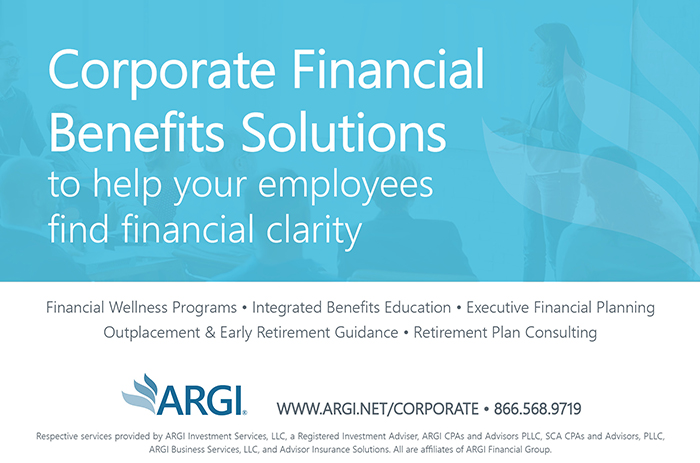By Colin Wheeler
When it comes to money, many Americans have some sort of stake in the markets. Whether it is directly through investments, or indirectly through a retirement account like a 401(k) or IRA, Wall Street can have a big impact on an individual’s financial future.
If you’ve paid attention to the stock markets, you know that recently, investors have experienced anything but smooth sailing. The weeks leading up to a nail-biting election made the markets extremely unpredictable, but what factors should truly concern investors? The answer may be simpler than you think.
POLITICS
Every four years, the highest seat in the land comes up for grabs. Often, our personal political beliefs may be formulated by our economic worldview. For that reason, presidential elections are frequently seen as potential turning points for the economy. During election years, many Americans wonder if a new administration will make huge policy changes, or if a returning administration will keep the status quo. Both are valid concerns, but according to history, a transition of political power may not have a big impact in the long run.
According to historical data from Bloomberg, since 1948, the S&P 500 has grown regardless of political party. In fact, if you made a $1000 investment under President Truman, your S&P stock would have grown to almost $2.7 million as of January of this year, but that’s only if you left it untouched.
The reality is many investors are quick to react with their emotions, and if this election year has proven anything it’s that politics can bring out the best or worst in us. Say you were extremely dedicated to your party, and only put money in the market when your party held the presidency. If you kept that investment mindset, you would have missed out on nearly half of the years between 1948 and 2020, regardless if you held a Democratic or Republican view! But how does this all apply to 2020?
The day after the election, the S&P 500 rose 2.2%, and the Nasdaq rose 3.9%. According to the preliminary election results, it appeared that America would have a divided government with a Democratic President and House, and a Republican Senate.
It may seem that having a singular party control the White House and both houses of Congress is the best situation for investors, but in practice, that may not be the case. Since 1937, the S&P index has shown a 14.6% return after elections resulting in a divided government, compared to a 13% return in election years where one party took the presidency, House, and Senate. In other words, the markets seem to approve a diverse control of political power.
INDUSTRIES AND NEWS
Ask any financial advisor what they think is a key factor in portfolio development and you may get a trending answer: diversification.
Just as the markets have historically approved of diverse political views, many financial advisors view diverse investments as a smart strategy. The old phrase, “don’t put all your eggs in one basket” translates seamlessly to many investment management theories. Asset diversification refers to the spreading assets across various investment categories to potentially reduce exposure in one certain area. A recent example of this is the impact COVID had on different industries in the market.
On Monday November 9, Pfizer announced their COVID vaccine is more than 90% effective in preventing infections. That same day, Wall Street responded by betting that our “normal lives” may return sooner rather than later as stocks of travel companies, sit-down restaurants, and various entertainment industries shot up. On the flipside, this news sent quarantine thriving companies like Peloton, Zoom, and Netflix into a sharp sell off.
In either of these cases, if you had all of your investments dedicated to one company, you would have felt it in your wallet. While it may have been nice to be one of those travel companies on November 9, those same companies experienced huge hits earlier in the year. Even more so, if you were invested solely in travel, you may have sold off your investments when the pandemic stuck and were unable to reap the surge that occurred in early November.
PUTTING THIS INTO PRACTICE
There are several key takeaways that you may want to consider for your own portfolio.
- Make decisions with data, not emotions.
Humans are innately emotional beings, so this advice is easier said than done. One common theory amongst seasoned investors is that many are driven by one of two emotions: fear or greed. In good times, investors tend to make bolder moves–which exposes those investments to more risk. And in bad times, investors tend to pull back and then miss out on great buying opportunities. Most often, if your instincts are telling you to act in times of panic or euphoria, your best bet may be to take a step back and look at the facts. That breather could save you from a decision you might regret.
- Understand how long-term and short-term investing can impact you.
Long-term and short-term investment strategies are all based on defining your personal goals and timelines. While the day trader sells or buys in reaction to immediate economic or market news, the buy-and-hold investor has a long-term perspective and understands that the market can have periods of volatility. Either way one thing is for certain, the stock market is an ever changing entity. What impacts the markets today may be irrelevant tomorrow, a year or 5 years down the road. Knowing what your investing goals are ahead of time can help you better determine your personal investment strategy.
- Partner with a professional.
It goes without saying that everyone’s financial situation is different. Getting the opinion of an unbiased fiduciary financial advisor can reveal some insights into how your investments could impact your overall financial outlook. A fiduciary such as a Certified Financial Planner Professional™ must always put their client’s best interests ahead of their own. Your financial advisor should equip you with the facts you need to make the best investment decisions available to you. They will also help you create a plan to stay on track towards your personal financial goals. While you consider your investment strategy, it’s important to remember that past performance does not guarantee future results. These times of market volatility can be unnerving, but rest assured it is a normal occurrence. Additionally, being prepared with an investment strategy can help calm heightened emotions and ensure you are on track with your personal financial plan.

Colin Wheeler, CFP®
Financial Advisor
ColinWheeler@argi.net
www.argi.net

